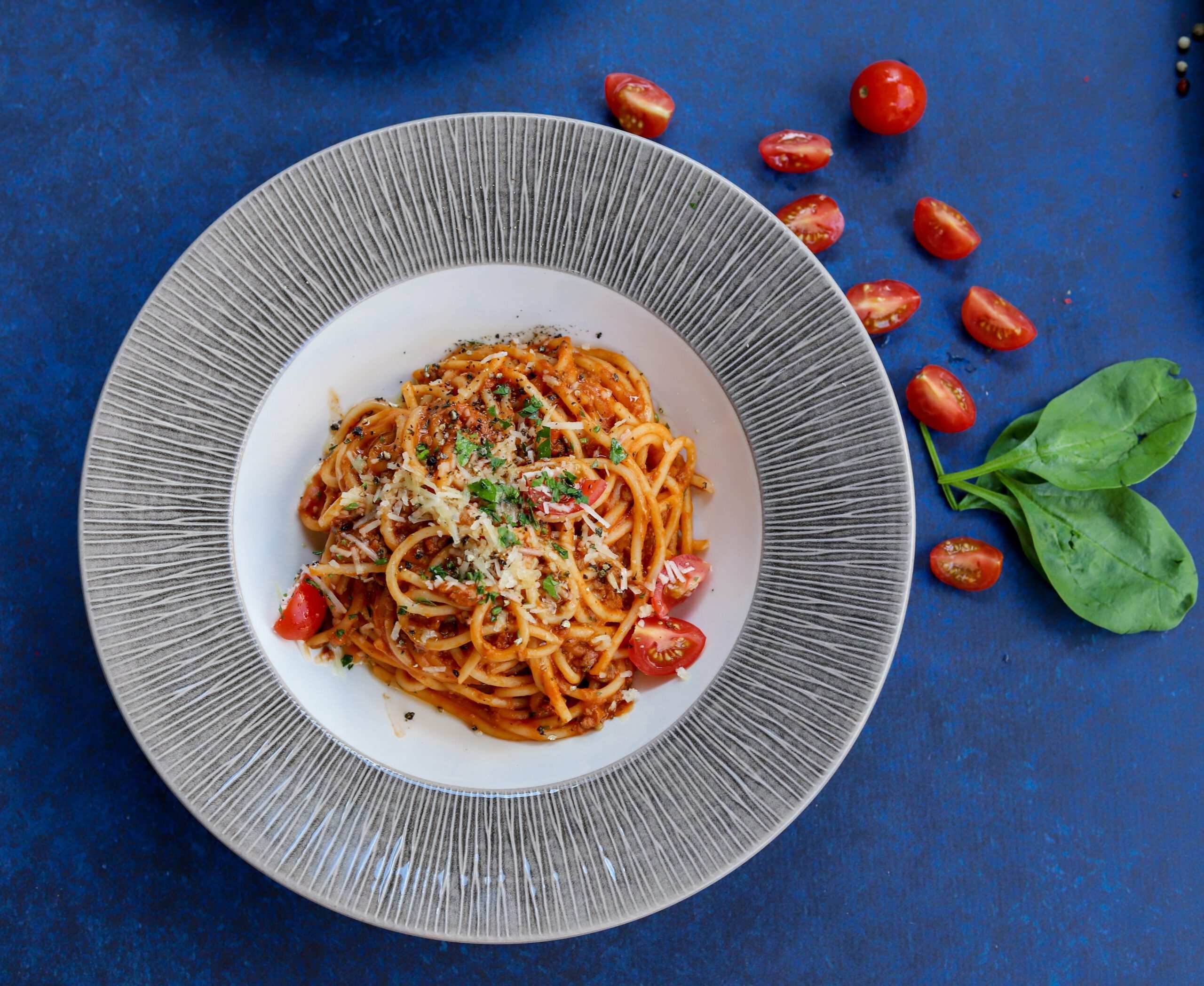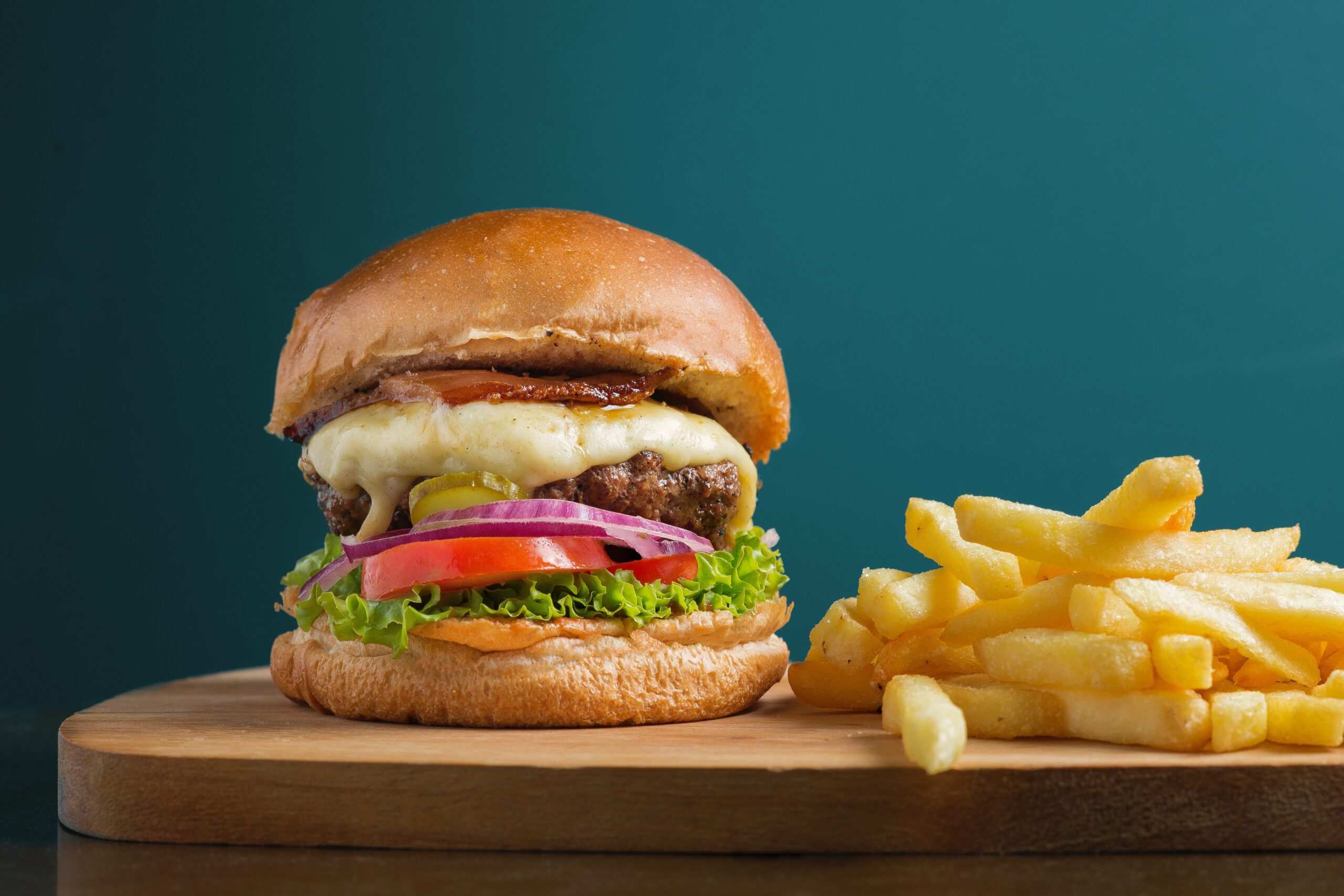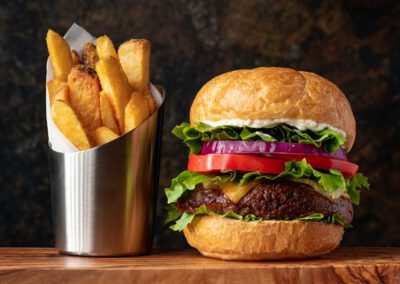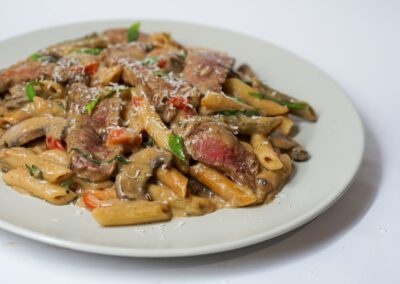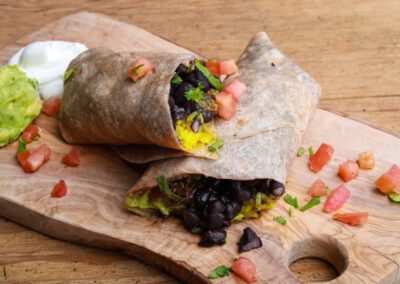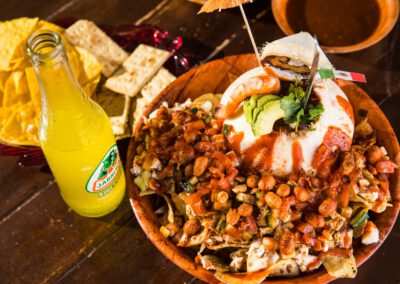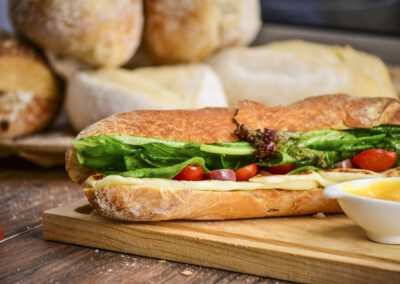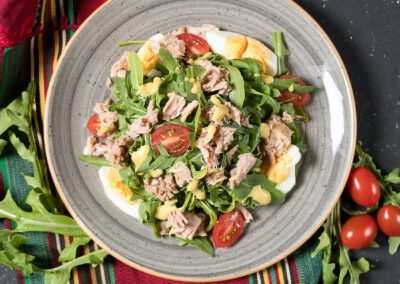Zoek een nieuw gerecht of voedingsmiddel
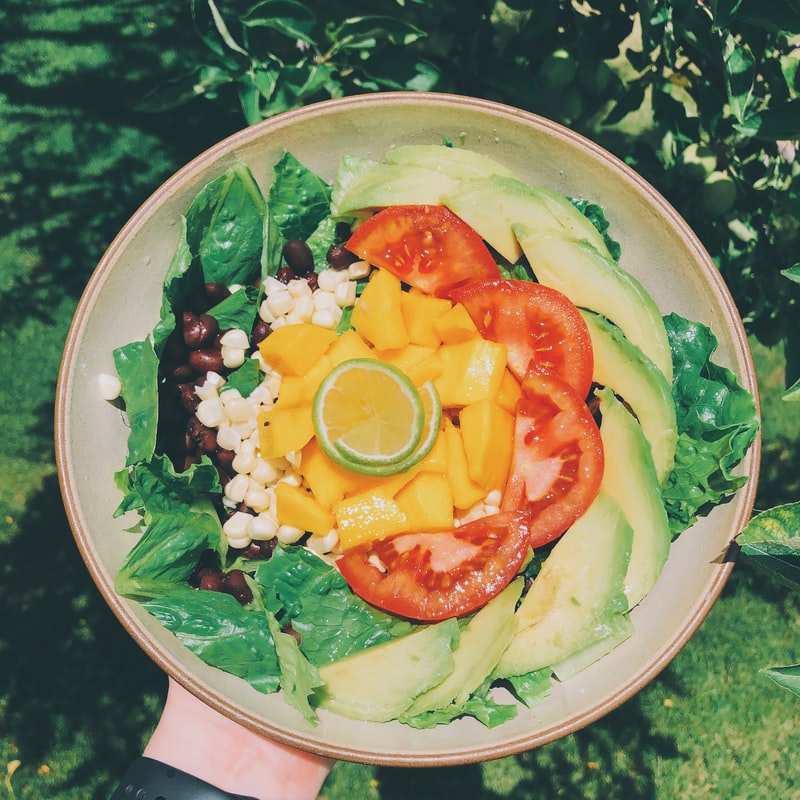
This meal is based on a recipe from Dutch food site De Hippe Vegetariër, click here for the recipe.
1.24 kg CO2eq ****
152.21 L water *
1.19 m2*year **
(5 stars = good, 1 star = bad, compared to other meals on this site)
- 1-person portion based on a 4-person meal
- Data: Dutch market average (RIVM)
- Ingredients: Rice (65 grams), Onion (raw) (50 grams), Brown beans (100 grams), Vegetarian minced meat (90 grams), Corn (125 grams), Tomato (100 grams), Avocado (50 grams), Oil (olive) (10 grams), Herbs.
Compare the climate impact of this meal
Compared with a 1-persion portion

11.6 KM
Compared to CO2 emissions per km of an average-sized car (Source: Rijksoverheid, CLO, 2017)

12.7 Minutes
Compared to the water use of an average sower per minute (Source: Milieu Centraal)

13 Pavement tiles*year
Land use * year compared to the size of an average Dutch pavement tile (30cm*30cm)
Lower your emissions with the following changes
Percentages and tips on basis of similar products and portions.


Compare to other meals
Compared to a 1-person portion of a 4-person meal
- CO2eq: Risotto is 31% slechter
- Water: Risotto is 58% beter
- Land: Risotto is 58% beter
- CO2eq: Bolognese is 206% slechter
- Water: Bolognese is 70% beter
- Land: Bolognese is 50% slechter
- CO2eq: Burger is 249% slechter
- Water: Burger is 69% beter
- Land: Burger is 86% slechter
Impact of ingredients
The distribution of the impact of the most impactful ingredients in this dish is shown for the 3 indicators.
- Vegetarian minced meat 32%
- Corn (canned) 16%
- Brown beans (canned) 15%
- Tomato 14%
- Avocado 42%
- Olive oil 25%
- Corn (canned) 8%
- Rice 7%
- Vegetarian minced meat 25%
- Olive oil 24%
- Corn (canned) 19%
- Brown beans (canned) 18%
Look further
More meals coming soon
FAQ
Where does the data come from?
The data on the CO2eq, water and land impact of the food products originates (mainly) from the RIVM and is based on a weighted average of the emissions for the average supply of this product on the Dutch market.
Why these 3 impact factors?
These 3 factors have been chosen because they are the most important indicators of climate problems caused by food production. More explanation about the factors here.
Which factor is the most important?
For global warming, CO2eq is the most important parameter, but this does not mean that the other parameters are not important. Land use and water consumption are also causing many problems worldwide, read more here.
FAQ
Where does the data come from?
The data on the CO2eq, water and land impact of the food products originates (mainly) from the RIVM and is based on a weighted average of the emissions for the average supply of this product on the Dutch market.
Why these 3 impact factors?
These 3 factors have been chosen because they are the most important indicators of climate problems caused by food production. More explanation about the factors here.
Which factor is the most important?
For global warming, CO2eq is the most important parameter, but this does not mean that the other parameters are not important. Land use and water consumption are also causing many problems worldwide, read more here.


